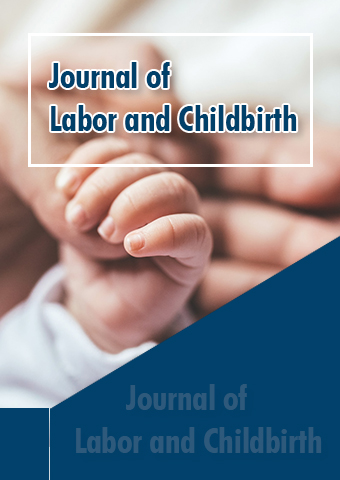Perspective - Journal of Labor and Childbirth (2023) Volume 6, Issue 6
Ectopic Pregnancy: A Silent Threat to Women's Health
- Corresponding Author:
- Pia Teleman
Department of Gynecology,
Lue University,
Lund,
Sweden
E-mail: pia.teleman1@skane.se
Received: 02-Nov-2023, Manuscript No. jlcb-23-119512; Editor assigned: 07-Nov-2023, PreQC No. jlcb-23-119512 (PQ); Reviewed: 21- Nov-2023, QC No. jlcb-23-119512; Revised: 07-Dec-2023, Manuscript No. jlcb-23-119512 (R); Published: 15-Dec-2023, DOI: 10.37532/jlcb.2023.6(6).154-155
Introduction
Pregnancy is a transformative and cherished experience for many women, but it comes with its share of challenges and risks. Ectopic pregnancy is one such risk that can have serious consequences if not diagnosed and treated promptly. In this article, we will explore the intricacies of ectopic pregnancy, including its causes, symptoms, diagnosis and treatment, aiming to raise awareness about this potentially life-threatening condition.
Description
Ectopic pregnancy
An ectopic pregnancy, also known as a tubal pregnancy, occurs when a fertilized egg implants and begins to grow outside the uterus. The most common location for an ectopic pregnancy is in the fallopian tube, but it can also occur in other areas such as the cervix, ovary or abdominal cavity. Ectopic pregnancies are considered medical emergencies, as they can lead to severe complications and even be life-threatening if left untreated.
Causes of ectopic pregnancy
Understanding the causes of ectopic pregnancy is essential for risk assessment and prevention. Several factors can increase a woman’s risk of experiencing an ectopic pregnancy:
Previous ectopic pregnancy: Women who have had one ectopic pregnancy are at a higher risk of experiencing another.
Pelvic Inflammatory Disease (PID): Infections like chlamydia and gonorrhea can lead to inflammation and scarring in the fallopian tubes, making it more difficult for a fertilized egg to travel to the uterus.
Tubal surgery: Previous surgeries on the fallopian tubes, such as for sterilization or treatment of a tubal pregnancy, can increase the risk of ectopic pregnancy.
IUD use: While highly effective in preventing pregnancy, Intrauterine Devices (IUDs) slightly increase the risk of ectopic pregnancy if a pregnancy does occur while the IUD is in place.
Endometriosis: This condition can lead to the development of scar tissue, making it more likely for a fertilized egg to become trapped in the fallopian tubes.
Smoking: Smoking can damage the fallopian tubes and increase the risk of ectopic pregnancy.
Assisted Reproductive Technology (ART): Women who have undergone In-Vitro Fertilization (IVF) or other fertility treatments may be at a higher risk of ectopic pregnancy.
Maternal age: Women over the age of 35 are at a slightly higher risk of ectopic pregnancy.
Symptoms of ectopic pregnancy
Ectopic pregnancies often present with symptoms similar to a normal pregnancy in its early stages. However, as the pregnancy progresses, the following symptoms may develop, signaling a potential ectopic pregnancy:
Abdominal pain: Sharp, severe pain on one side of the lower abdomen is a common symptom of an ectopic pregnancy.
Vaginal bleeding: Light to heavy vaginal bleeding that may be accompanied by abdominal pain.
Shoulder pain: In some cases, the pain from an ectopic pregnancy can radiate to the shoulder.
Weakness, dizziness or fainting: These symptoms may result from internal bleeding and low blood pressure.
Gastrointestinal symptoms: Nausea, vomiting, diarrhea or constipation may occur in conjunction with other symptoms.
It is important to note that while these symptoms can be indicative of an ectopic pregnancy, they can also be associated with other medical conditions. Anyone experiencing these symptoms should seek immediate medical attention to determine the underlying cause.
Diagnosis of ectopic pregnancy
Diagnosing an ectopic pregnancy requires a combination of medical history, physical examination and diagnostic tests. Healthcare professionals may use the following methods to diagnose ectopic pregnancies:
Transvaginal ultrasound: This imaging technique is a primary tool for diagnosing ectopic pregnancies. It allows the visualization of the location of the pregnancy.
Blood hCG levels: Measurement of human Chorionic Gonadotropin (hCG) levels over time can help confirm or rule out an ectopic pregnancy. In an ectopic pregnancy, hCG levels may rise more slowly than in a normal pregnancy.
Laparoscopy: In some cases, a laparoscopy may be necessary to directly view the pelvic organs and confirm the diagnosis. This procedure is typically reserved for cases with diagnostic uncertainty or when treatment is required.
Treatment options for ectopic pregnancy
Once diagnosed, an ectopic pregnancy must be treated promptly to prevent life-threatening complications. The choice of treatment depends on several factors, including the location and size of the ectopic pregnancy, the patient’s overall health and her desire for future pregnancies. The primary treatment options are:
Methotrexate: Methotrexate is a medication that can be used to terminate an ectopic pregnancy when it is diagnosed early and the embryo has not grown too large. It works by stopping the growth of the developing embryo, allowing the body to reabsorb it.
Laparoscopic surgery: If the ectopic pregnancy is large or causing severe symptoms, laparoscopic surgery may be necessary. During this procedure, the surgeon removes the ectopic pregnancy while preserving the affected fallopian tube whenever possible.
Laparotomy: In more severe cases, a laparotomy (open abdominal surgery) may be required. This is typically reserved for situations in which the fallopian tube has ruptured or is severely damaged. It is essential to consult with a healthcare professional to determine the most appropriate treatment option for each individual case.
Conclusion
Ectopic pregnancy is a potentially lifethreatening condition that requires swift diagnosis and treatment. It can be emotionally and physically challenging, but with the right medical care and support, most women can recover and have a good chance of future pregnancies. Awareness of the risk factors, symptoms and treatment options is essential for both healthcare providers and women to ensure early intervention and optimal outcomes.
As a society, we should continue to prioritize women’s reproductive health and provide education and resources to promote early detection and effective management of ectopic pregnancies. With timely medical care and emotional support, we can help women navigate the challenges of ectopic pregnancy and promote overall well-being.
Ectopic pregnancy is a complex and potentially life-threatening condition that requires prompt medical attention. This article provides an indepth exploration of ectopic pregnancy, covering its causes, symptoms, diagnosis and treatment options, with the aim of increasing awareness and understanding of this important issue.

